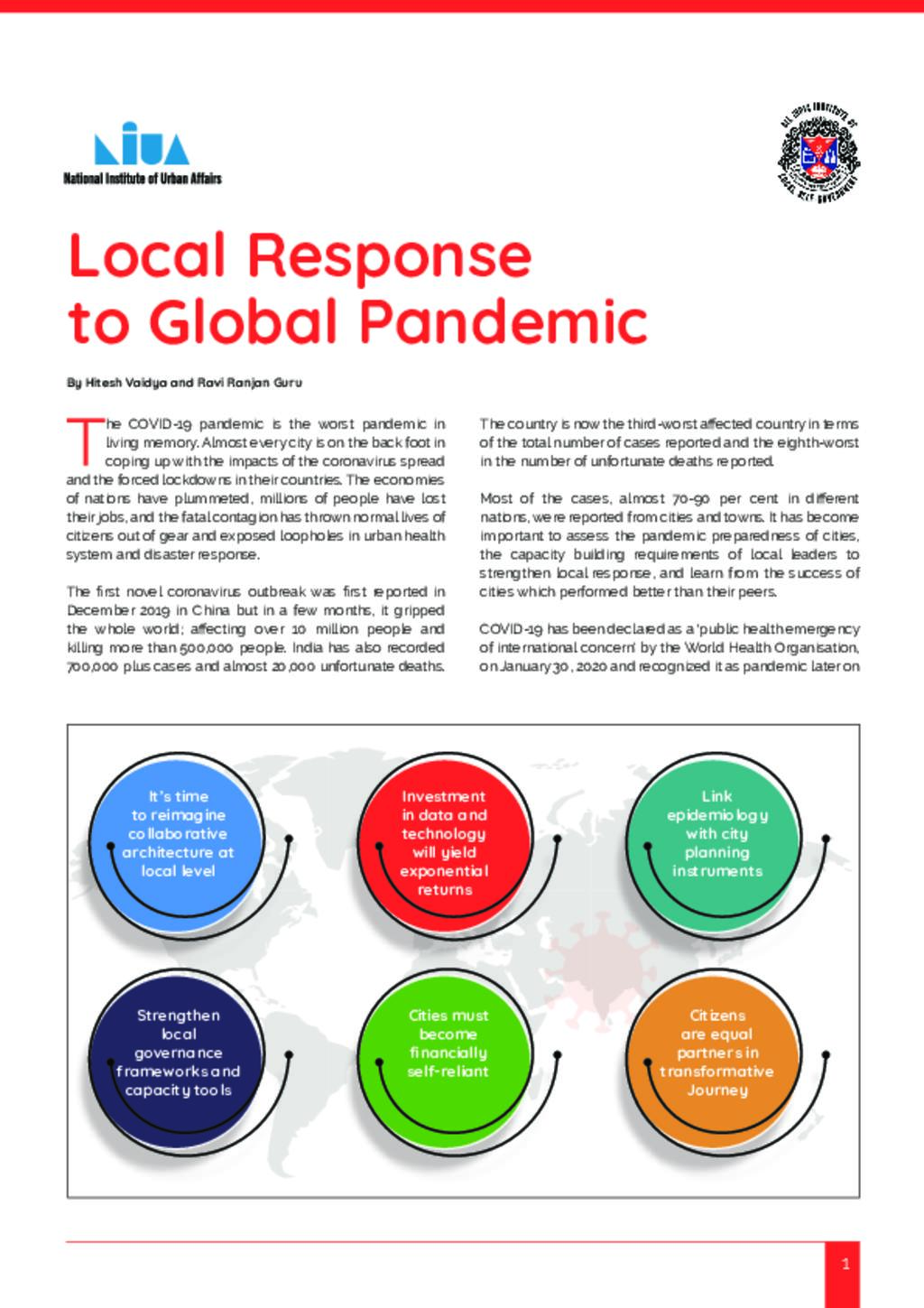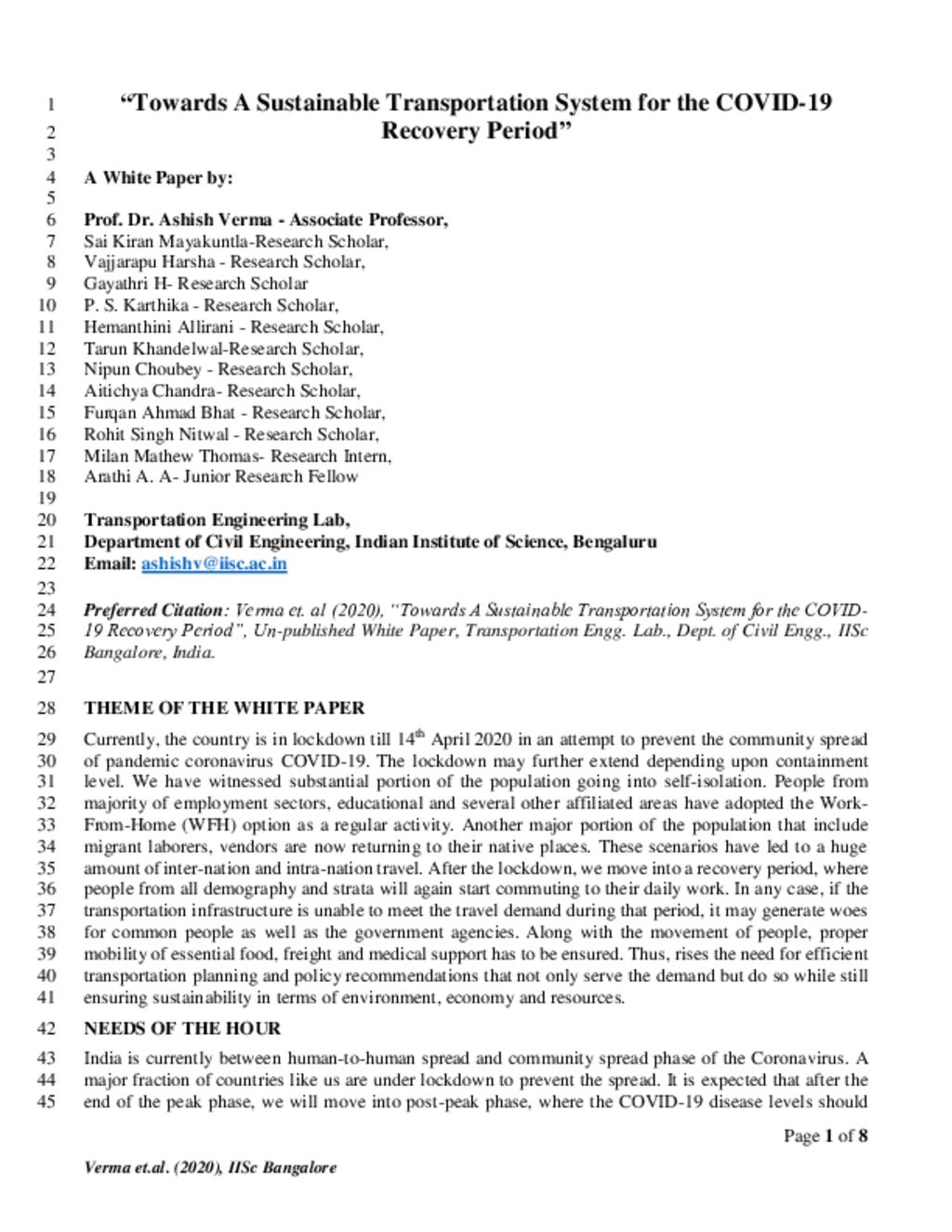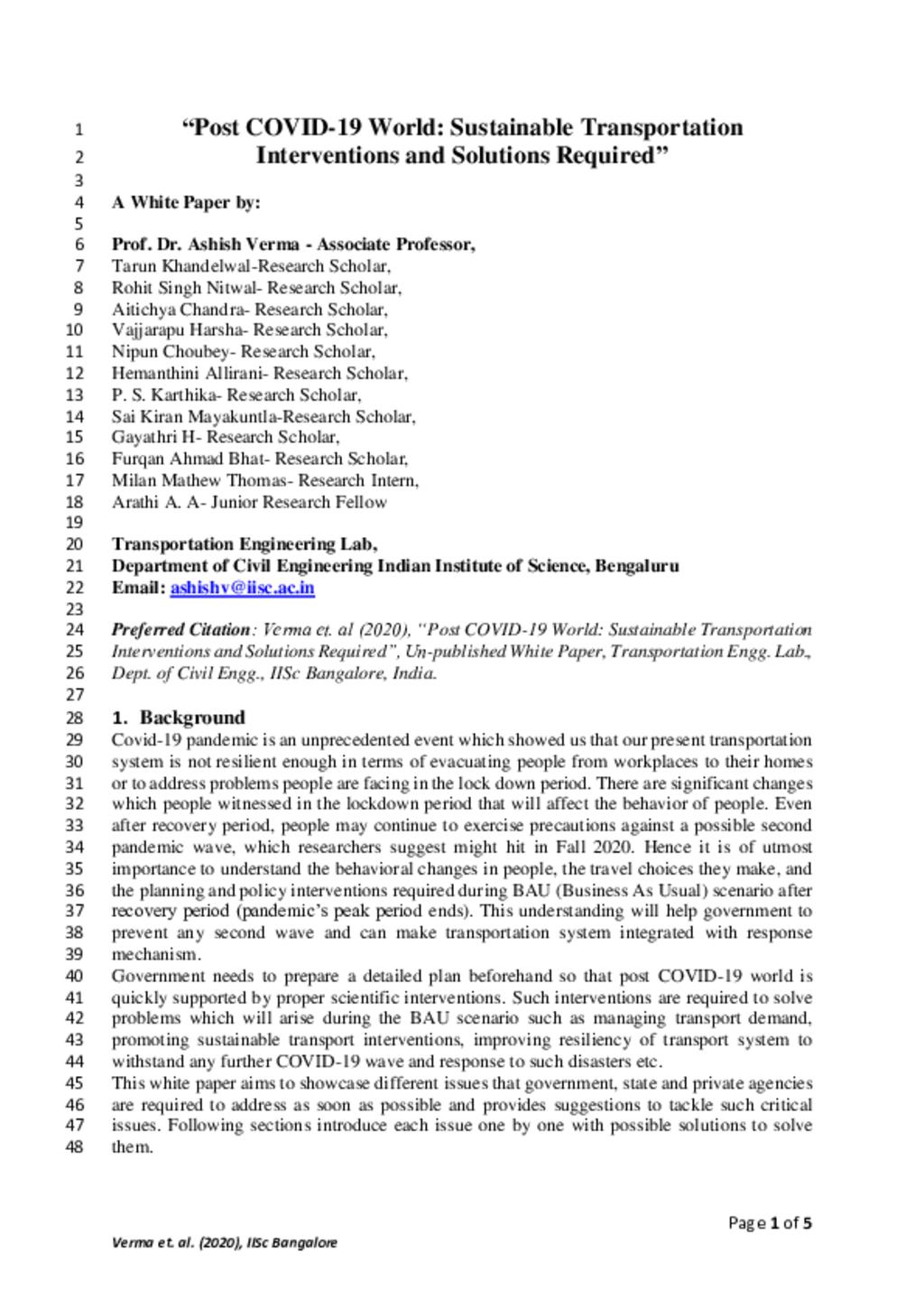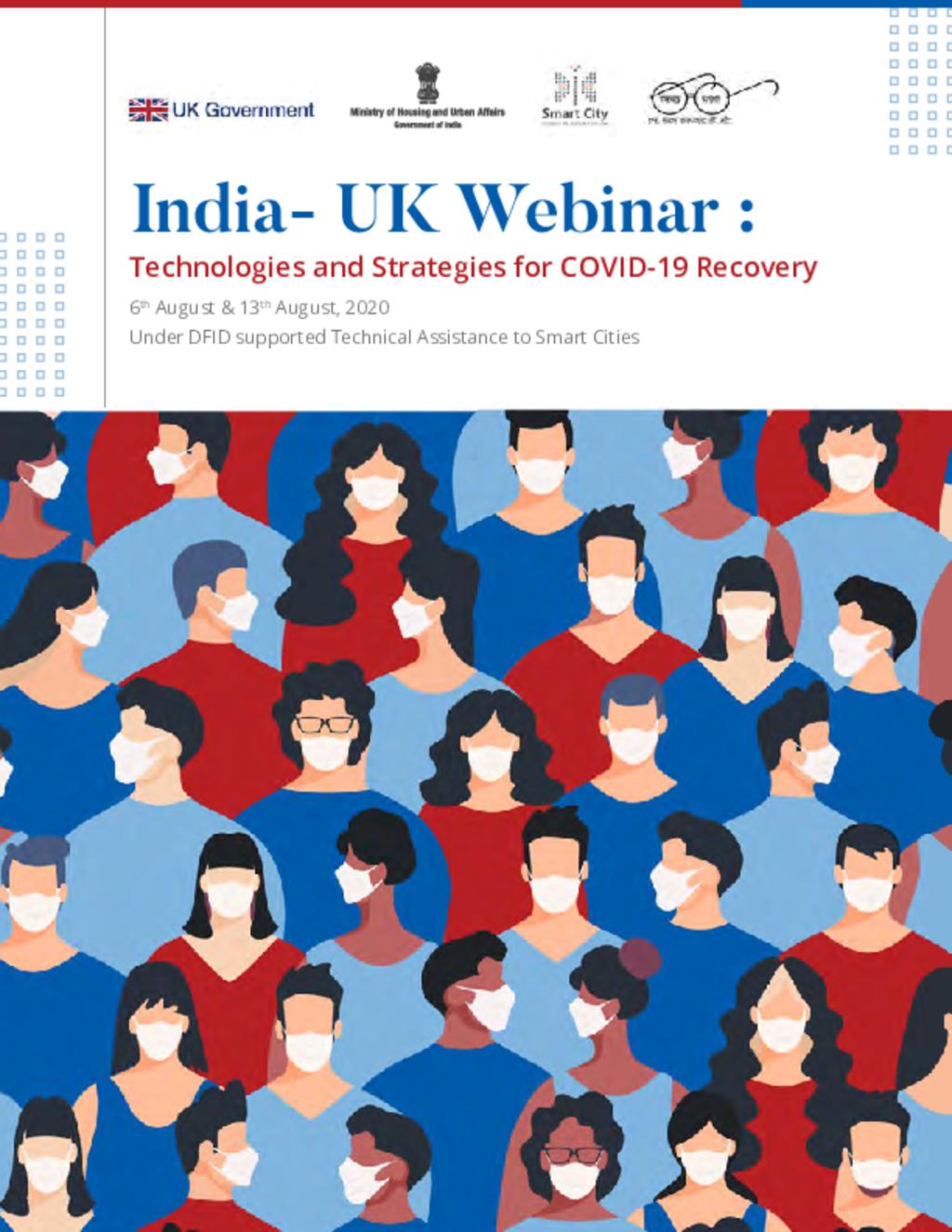



 |
Local Response to Global PandemicThe COVID-19 pandemic is the worst pandemic in living memory. Almost every city is on the back foot in coping up with the impacts of the coronavirus spread and the forced lockdowns in their countries. The economies of nations have plummeted, millions of people have lost their jobs, and the fatal contagion has thrown normal lives of citizens out of gear and exposed loopholes in urban health system and disaster response. The country is now the third-worst affected country in terms of the total number of cases reported and the eighth-worst in the number of unfortunate deaths reported. Most of the cases, almost 70-90 per cent in different nations, were reported from cities and towns. It has become important to assess the pandemic preparedness of cities, the capacity |
 |
Towards A Sustainable Transportation System for the COVID-19 Recovery PeriodCurrently, the country is in lockdown till 14th April 2020 in an attempt to prevent the community spread of pandemic coronavirus COVID-19. The lockdown may further extend depending upon containment level. We have witnessed substantial portion of the population going into self-isolation. People from majority of employment sectors, educational and several other affiliated areas have adopted the Work-From-Home (WFH) option as a regular activity. Another major portion of the population that include migrant laborers, vendors are now returning to their native places. These scenarios have led to a huge amount of inter-nation and intra-nation travel. After the lockdown, we move into a recovery period, where people from all demography and strata |
 |
Post COVID-19 World: Sustainable Transportation Interventions and Solutions Required
Covid-19 pandemic is an unprecedented event which showed us that our present transportation system is not resilient enough in terms of evacuating people from workplaces to their homes or to address problems people are facing in the lock down period. There are significant changes which people witnessed in the lockdown period that will affect the behavior of people. Even after recovery period, people may continue to exercise precautions against a possible second pandemic wave, which researchers suggest might hit in Fall 2020. Hence it is of utmost importance to understand the behavioral changes in people, the travel choices they make, and the planning and policy interventions required during BAU (Business As Usual) scenario |
 |
Roadmap for enabling Digital Payments for building a Less Cash Economy Model to fight Covid-19Every day, consumers interact with the Government through its various public services websites for payments related to property registration, birth, marriage & death registrations, water, state owned electricity payments, traffic police eChallan payments, booking tickets, parking, toll plazas, websites and much more. In most of these places, the government services are yet to adopt a digital mode of payment. We have encouraged digital payment in our smart cities in a big way , yet more miles are required to be covered for adoption of Digital Payments across Smart Cities. An insightful session on “Roadmap for enabling Digital Payments for building a Less Cash Economy Model to fight Covid-19” was |
 |
India- UK Webinar : Technologies and Strategies for COVID-19 RecoveryKnowledge sharing with Indian smart cities that are practical, live, option to remain functional and relevant to the Covid-19 situation and customize and adoptable by the Indian cities by the UK companies. Covid-19 has presented the toughest challenge to the modern nations. The Urban province has been the greater recipient of the cause and is perhaps battling the toughest crisis. Every nation has adopted strategy at their end and took initiatives to help cities overcome this challenge. A number of these initiatives have made a marked difference in the way cities have responded to the crisis at hand and will continue to influence the post-pandemic urban planning and life in cities. A lot of the learnings and initiatives are now being scaled to |